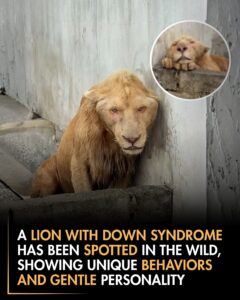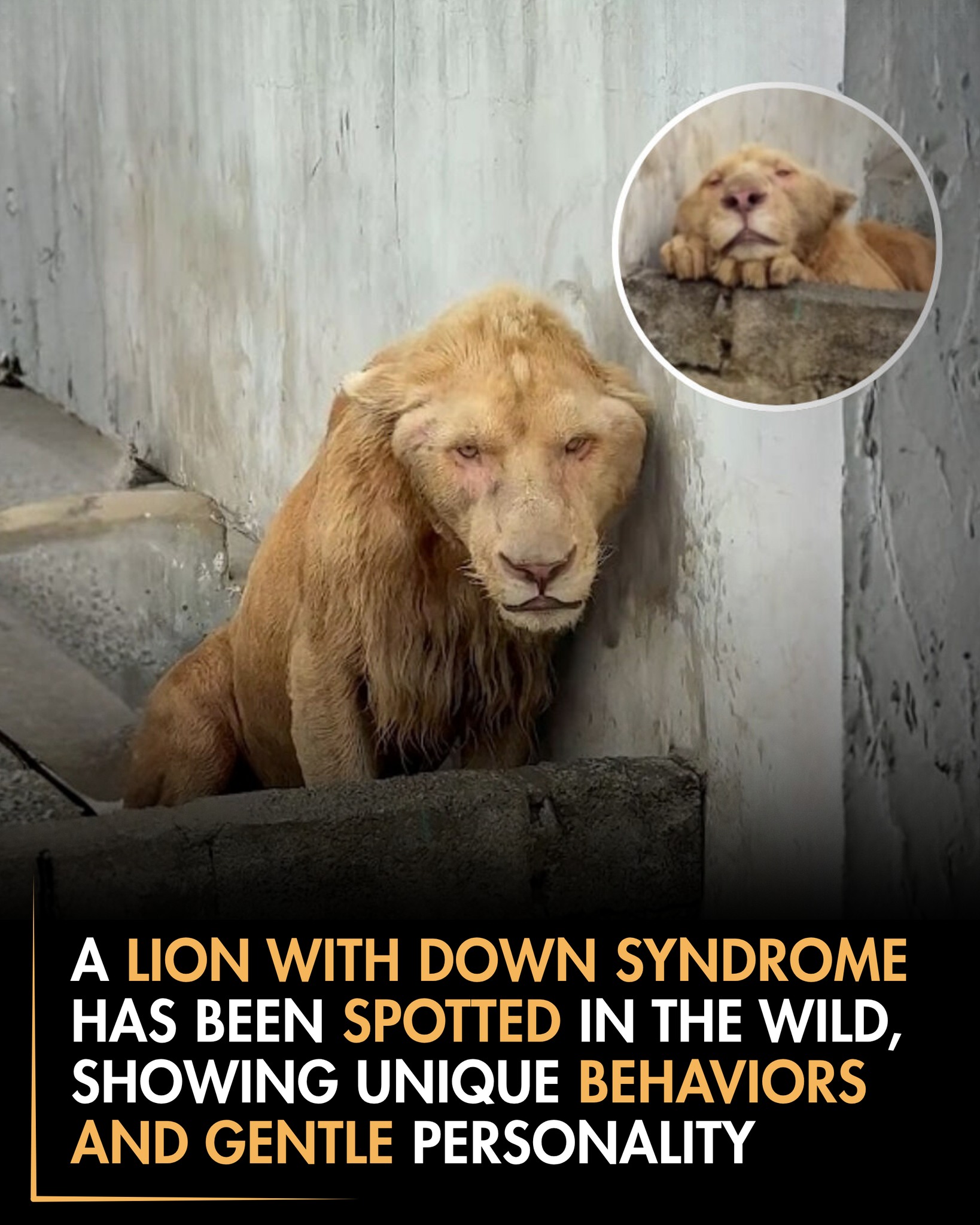Deep in the savannahs of southern Africa, a remarkable lion has captured global attention — a young male exhibiting unusual physical and behavioral traits reminiscent of what, in humans, might be described as Down syndrome. Though experts agree that true Down syndrome cannot occur in non-human species, the animal’s appearance and demeanor have opened an extraordinary conversation about genetics, adaptation, and empathy in the natural world.

A Chance Encounter
It began when a team of wildlife photographers on an expedition in Botswana’s Okavango Delta spotted a lion with an unusually broad face, slightly asymmetrical features, and a gentle, almost playful demeanor. “At first, we thought he was injured or malnourished,” said Dr. Laila Nkosi, a zoologist from the University of Pretoria who later studied the footage. “But his physical differences seemed congenital rather than caused by trauma.”
The team nicknamed him “Moya,” meaning “spirit” in Setswana — a tribute to his calm presence amid the chaos of the wild.
Unusual but Thriving
Moya’s pack interactions also stood out. While most young male lions are known for assertiveness and competition, Moya was observed playing gently with cubs, allowing them to climb on him, and showing little interest in dominance displays. “It’s rare to see such tolerance in a young male,” noted wildlife filmmaker Carlos Deven. “He seemed to prioritize connection over aggression.”
Despite his apparent differences, Moya has survived several years in the wild — a remarkable feat in itself. His pride appears to accept him, though he often stays on the fringes, watching rather than leading. “It’s as if the pride recognizes something special about him,” said Dr. Nkosi. “He doesn’t follow the usual social script, yet he’s respected.”
The Science Behind the Mystery
Geneticists emphasize that animals do not develop Down syndrome, which is specific to humans because it results from a duplication of chromosome 21. Lions have a different chromosomal structure entirely. However, genetic anomalies can occur across species, leading to developmental differences that sometimes mimic familiar human traits.
“It’s possible Moya has a chromosomal duplication or deletion affecting growth and neural development,” explained Dr. Jun Matsuda, a comparative geneticist at Kyoto University. “Such conditions may influence his facial symmetry, coordination, and behavior — creating what we might call ‘Down syndrome-like’ characteristics, though the term isn’t scientifically accurate for animals.”
A Symbol of Empathy in Nature
For many observers, Moya’s story is less about science and more about the emotional connection it inspires. Social media users, moved by photos of the lion’s serene expression, have dubbed him “the gentle king.” Conservation groups have used his story to raise awareness about inclusivity, diversity, and compassion — values not often associated with the harsh realities of the wild.
“Moya reminds us that nature, like humanity, doesn’t conform to perfection,” said wildlife advocate Sarita Lowell. “Even with his differences, he has a place in the world. He belongs.”
An Ongoing Mystery
Researchers continue to monitor Moya through non-invasive tracking, hoping to learn more about his genetic profile and survival patterns. While he may never lead a pride or father cubs, his existence challenges assumptions about what it means to thrive in nature.
As Dr. Nkosi reflected, “Perhaps Moya’s greatest gift is perspective. He shows us that strength can take many forms — sometimes quiet, sometimes gentle, always resilient.”


